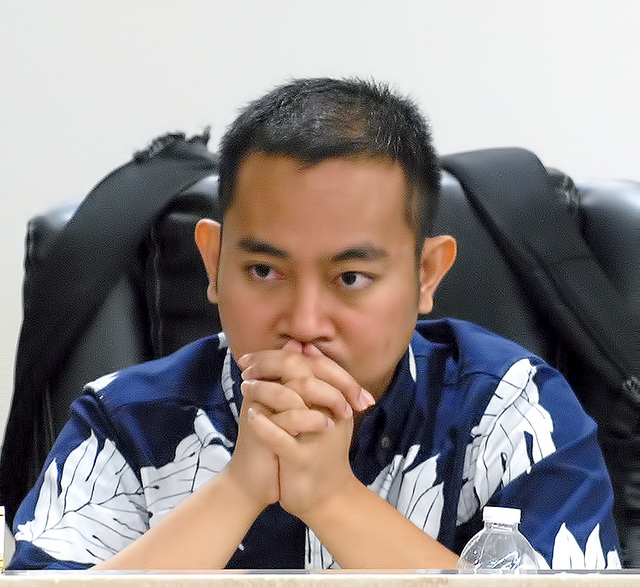In response to numerous complaints about squatters living in vacant, bank-owned homes in Puna, Hawaii County Councilman Greggor Ilagan formed a task force and is seeking public input in an effort to find a solution. ADVERTISING In response to numerous
In response to numerous complaints about squatters living in vacant, bank-owned homes in Puna, Hawaii County Councilman Greggor Ilagan formed a task force and is seeking public input in an effort to find a solution.
While local legislation is a likely outcome, Ilagan is refraining from drafting a bill.
Instead, his office is conducting a survey to gather information from experts in the community — banks, attorneys, state and county agencies, and organizations — and the task force will discuss the issue.
“We should go out to the community and businesses and bring this front and center,” he said.
One of the biggest problems lies with foreclosed homes, which are numerous in Puna, and an inability to establish ownership.
Ilagan said that at one property in particular, authorities were unable to evict squatters for months because they could not get in contact with the bank or person who owned the property. And unless there is a formal complaint from the owner, police can’t act.
Police Lt. Reed Mahuna of the Puna Patrol Division said while it is a call his office receives fairly often, squatting is “not an easy problem to rectify. “
“We (often) don’t have an owner who is willing to step forward to be the complainant,” he said. “Usually, the complaints about foreclosed homes are coming from neighbors who know people shouldn’t be there.”
Among the first to respond to Ilagan’s survey was Bill Walter, president of W.H. Shipman Ltd. He said squatting has become a “significant” problem in Puna, with individuals and groups taking up residence on virtually any unoccupied property.
“The state of Hawaii and Hawaii County … are becoming a ‘go-to’ location for homeless and squatters,” he wrote in his response. “We need to put in place laws that will act as a brake on this movement.”
Walter, who has dealt with the issue first-hand, suggests making it illegal to camp on private land, with fines commensurate with the apparent length of stay and value of the makeshift structures, if any.
In a July 8 post to the county website, Ilagan said squatting is causing headaches for local residents.
“What we see as a problem (with squatting) is that people are going into other people’s property with the intent to live in there and reducing the quality of life around the area,” Ilagan said in a statement. “But the other end of that spectrum is adverse possession, when the person is living there and increasing the quality around the area.”
Under Hawaii’s adverse possession laws, trespassers are allowed to gain legal title to 5 acres or less if they openly inhabit the property for at least 20 years.
Ilagan said he included adverse possession in the discussion because there might be opportunities for the homeless to resurrect properties.
“(Sometimes) people who go into a property that’s dilapidated and actually improve that property and increase the quality of life in the community. I want to also help with that because we have affordable housing issues,” he said. “We have people that want to pursue the American dream.”
While squatting appears to be a bigger issue in Puna, perhaps exacerbated by the June 27 lava flow and Tropical Storm Iselle, Ilagan said his bill — if he takes that route — would not be Puna-centric, but rather prohibit squatting islandwide.
“We need as much feedback as possible,” he said.
Ilagan’s effort comes roughly one month after a state Department of Human Service report showed the Big Island’s total homeless count had reached 1,241 individuals for 2015, a nearly 43 percent increase compared to last year alone, and a 123 percent increase from 2013, when the island total was 557 homeless. Pahoa alone added 87 homeless, for a total of 187.
Members of Ilagan’s volunteer task force include June Conant, Bobbye St. Ambrogio, Judi Houle, Patti Pinto, Barbara Lampshere and Steve Lampshere.
For more information or to participate in the eight-question survey, visit www.hawaiicounty.gov/district4-2014.
Email Chris D’Angelo at cdangelo@hawaiitribune-herald.com.



